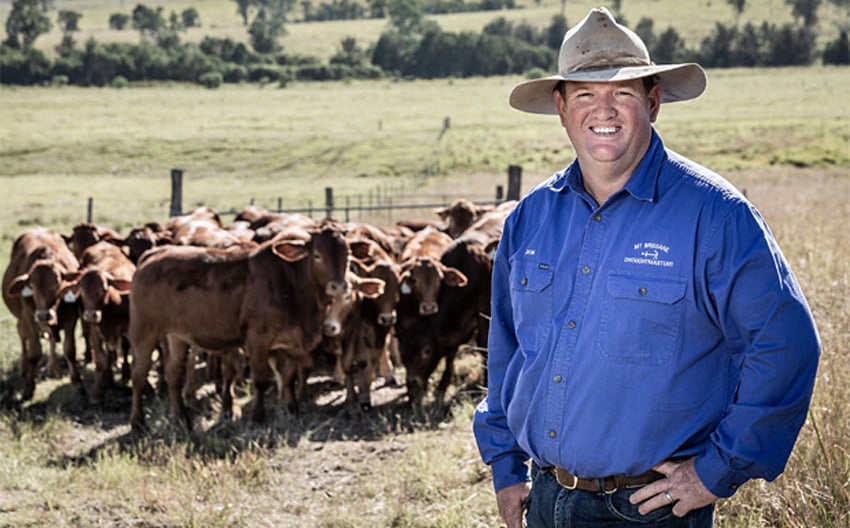Parasite roadshow earns beef sector’s tick of approval

Theme: Animal welfare
Priority: Maintain healthy livestock
Event: Parasite Management Roadshow
Location: northern New South Wales and Queensland
“By using long-acting drenches we’ve reduced the amount we’re handling our cattle, keeping both our labour costs and our drench costs down and putting less stress on the animals.”
KEY POINTS:
- Using long-acting drenches has enabled beef producer Don McConnel to cut his treatment frequency, reducing both costs and cattle stress
- Rotating parasite-control products helps to prevent resistance developing
- The success of Virbac Australia’s inaugural Parasite Management Roadshow has encouraged its organisers to consider expanding the event into other regions
Having faced down parasites in his own 1700-head Droughtmaster herd, Don McConnel decided to take the fight one step further by teaming up with animal health company Virbac Australia to share advice with other producers at one of five seminars in Queensland and northern New South Wales.
Don runs “Mt Brisbane”, a 4050-hectare beef breeding and finishing operation at Esk, west of the property’s namesake capital.
While ticks have traditionally been Don’s single biggest challenge, worms have affected his younger cattle and buffalo flies are likely to cause stock to lose condition in the warmer months if not treated.
“The dry seasons we’ve had recently have limited the problem but a return to wetter years would see it increase, and this might result in us needing to apply another drench treatment,” he said.
Choosing his products carefully and acknowledging the potential for parasites to become resistant to active ingredients are keys to his strategy.
“For us, Cydectin Long Acting given in the winter months and again in summer has produced the best result but we do need to manage resistance by using a different chemical group in either spring or winter.
“Resistance is becoming a bigger issue as some people seem to rely on one product too much. There’s a lack of understanding of the need for chemical rotation to prevent this.”
Don’s sustainable approach hinges on a mix of long-acting drenches. “Using these, we’ve reduced the amount we’re handling our cattle, keeping both our labour costs and our drench costs down and putting less stress on our animals, especially during the hottest and coldest months.”
When Don was invited by Virbac to be part of its five-stop Parasite Management Roadshow in August 2019, he didn’t hesitate.
“They asked if I’d like to give a presentation at Kingaroy [about 90 minutes’ drive from Esk], from a producer’s perspective,” he said. Don was one of two speakers that day, sharing the stage with veterinarian and Virbac Australia technical services manager Dr Matt Ball. (Rockhampton district vet–producer Dr Neil Farmer spoke during the two northernmost sessions.)
Thanks to an enthusiastic response to its tour of Kingaroy, Rockhampton, Banana, Beaudesert and Casino, the Parasite Management Roadshow now seems likely to become a recurring event. “The idea is to do more of these throughout different regions, depending on the challenges being faced in those parts,” Don said.
With Meat & Livestock Australia research showing ticks alone cost beef producers an estimated $175 million annually in treatment and lost production, awareness-raising such as this has enormous potential to boost animal health and wellbeing and at the same time minimise inputs.